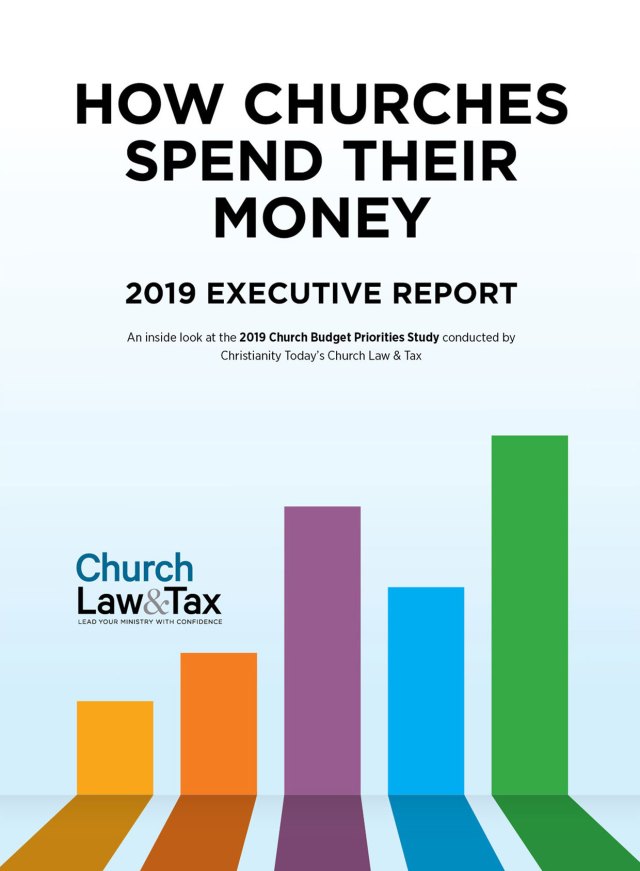Setting a pastor’s compensation is a complicated issue, says CPA Stan Reiff, a partner with the accounting firm CapinCrouse. A number of factors—the size of the church, the local cost of living, the experience level of the pastor—play a role. Reiff recently spoke with us about how a church can address the issue of pastoral compensation.
Say you are on a church board and you’re trying to hire a new pastor. How do you figure out compensation?
Let me talk about strategy first. And I want to look at Christian educators as an example, before looking at the church.
Many Christian schools say, “We want to hire incredible Christian schoolteachers but we are only going to pay 80 percent of the market, because we want them to sacrifice and see this work as a calling.” So they are trying to attract schoolteachers to come and work at 80 percent of the public school market.
At other schools, the administrators take the opposite approach. They say, we demand more from our teachers than the public school does and we’re going to pay a premium. Whatever the public school market is, we are going to pay 5 percent or 10 percent above that, because we want to attract the Christian teachers in the public school to also be part of our pool of applicants.
The church board has to ask, “Do we want to pay below market or do we want to pay more?”
What comes after you set the compensation level for a senior pastor? How should you treat other staff?
Once you set the compensation for the senior pastor, you need to ask, “What is the gap between the highest paid and the lowest paid person at the church? What’s the spread between the children’s pastor and the senior pastor? What’s the spread between the support staff and the senior pastor?” You want to make sure that the gap is not too big.
You also want to benchmark your clerical staff or your accountant against the market. If you are looking for an accountant at your church, what’s the market? And are you going to pay 80 percent of the market, or are you going to pay 100 percent of the market?
Who should advocate for the pastor when it comes to compensation?
The board should be advocating for their pastor. We love our pastors—we want them to be taken care of. We should all be advocating for them. But it’s rare to find leadership that is proactive, ensuring that there are raises and appropriate support for the pastor. Most pastors I talk to have to advocate for themselves.
If you are a board member, you should be trying to keep your pastor. If you like them and they are doing a good job, find out what they need and try to meet those needs.
A lot of churches think that a raise is always the way to go. Sometimes a bonus is okay, because it doesn’t increase the payroll year after year. You certainly want to consider a cost of living increase every year. But at some point, you want to consider a raise based on performance.
And sometimes, you just want to give the pastor a bonus to say, “We love you.” Many churches will do that through a love offering—which is a great idea. As a board, I would say in advance, “Let’s have a love offering, and regardless of what is collected, we are going to guarantee a certain amount. Then if it doesn’t come in from the love offering—we’ll take the rest from operating funds.”
Keep in mind, though, that bonus is always taxable, as is the love offering. And the love offering is part of the total compensation. The church’s governing body should always be in a position to regulate/govern/manage/provide fiduciary oversight and approval of the clergy’s compensation. If an amount comes in that is excessive, the governing body does have a fiduciary responsibility to steward those resources appropriately.
What about the issue of men being paid more than female clergy? Should churches pay attention to this issue?
If you have a female pastor of a congregation of 200 versus a male pastor of a congregation of 200—there should not be any difference in compensation, apart from the experience that they bring. If you are intentionally paying a female pastor less because she is female—that is just wrong. This should not be normalized and this should not be acceptable.
What about bivocational pastors?
Of the 350,000 places of worship in the United States today, probably 200,000 of those have less than 100 in the congregation. Many of those churches will have bivocational pastors.
One church may have no money, but they have an empty parsonage. So they tell the pastor, if you will preach for us, you can live in the parsonage and we will pay the utilities. So that pastor works fulltime somewhere else, and then preaches on the weekend in exchange for housing. Other churches will pay their pastor part time or half time.
It also depends on the life stage of the church. Is it a new church plant? Is it an aging congregation? Is it a rebuilding church?
If it is a church that is in decline, the question may be, “How do we pay the pastor until we close the doors?” If you are a new church or a church that’s growing, the question is, “How do we compensate the pastor, so they can maximize their time with us, until we have enough income to pay them fulltime?”
For more on this topic, see “Helping Boards Set Pastoral Compensation.” For detailed help creating compensation packages for several key staff positions, visit ChurchSalary.




